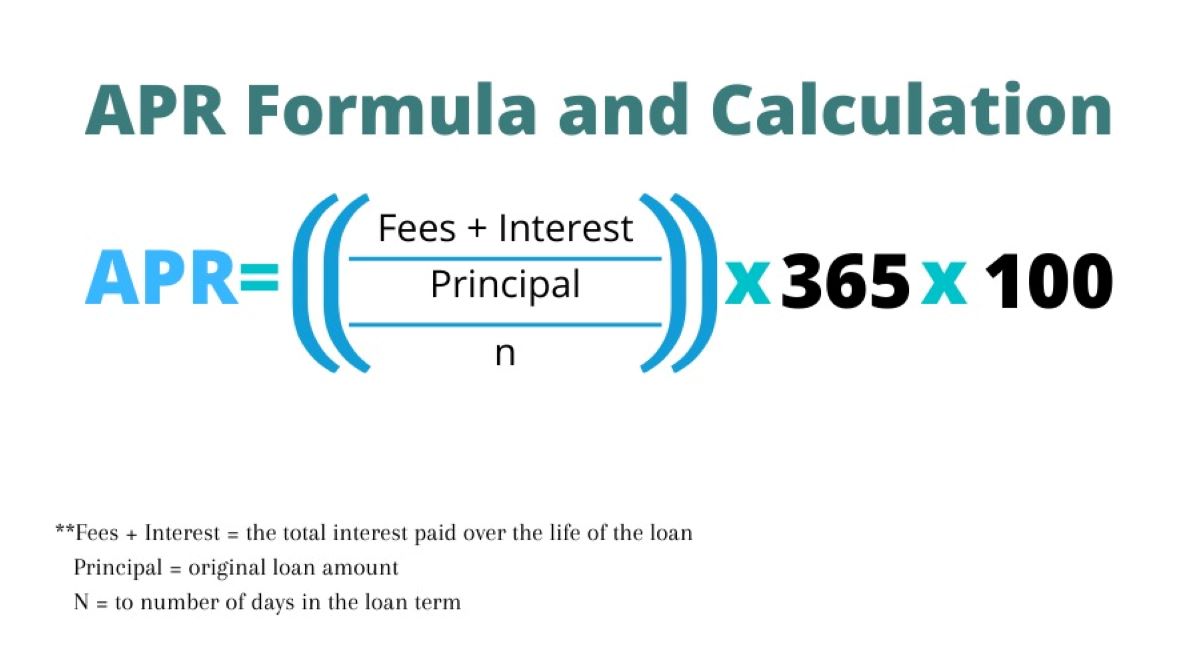

Finance
What Is SSR Stocks
Published: January 18, 2024
Learn all about SSR stocks and their importance in the world of finance. Discover how SSR stocks can benefit your investment portfolio and enhance your financial success.
(Many of the links in this article redirect to a specific reviewed product. Your purchase of these products through affiliate links helps to generate commission for LiveWell, at no extra cost. Learn more)
Table of Contents
Introduction
Welcome to the world of SSR Stocks! In the ever-evolving realm of finance, new concepts and strategies emerge constantly, and SSR Stocks is one such innovation that has gained significant attention. In this article, we will delve into the intricacies of SSR Stocks, exploring what they are, their purpose and function, how they differ from regular stocks, and the impact they have on market volatility. Additionally, we will provide examples of SSR Stocks, discuss the risks and challenges associated with them, and conclude with a comprehensive overview.
SSR Stocks, also known as Short Sale Restriction Stocks, have become a hot topic among investors and traders. These stocks are subject to specific regulations that limit or restrict short-selling activities. Short selling is a strategy where investors borrow shares of a stock, sell them, and then repurchase them at a lower price, aiming to profit from a decline in the stock’s value.
The purpose of SSR Stocks is to control volatility and promote market stability, especially during periods of heightened market turbulence. These restrictions are implemented to prevent excessive selling pressure and potential market manipulation. By limiting short-selling activities, SSR Stocks aim to prevent aggressive speculative trading that could destabilize markets.
SSR Stocks differ from regular stocks in terms of the regulations governing their trading activity. While regular stocks can be freely bought and sold, SSR Stocks have restrictions in place to prevent excessive short selling. These restrictions can be triggered when a stock’s price experiences a significant decline within a specified time period.
The impact of SSR Stocks on market volatility is a topic of great interest. Proponents argue that SSR Stocks help dampen volatility by curbing short-selling activities during market downturns. The restrictions can act as a circuit breaker, preventing panic selling and providing a more stable trading environment.
Now that we have a general understanding of SSR Stocks, let’s explore some examples in the next section.
Definition of SSR Stocks
To fully comprehend the concept of SSR Stocks, it is crucial to understand what SSR stands for. SSR is an abbreviation for Short Sale Restriction. Therefore, SSR Stocks are stocks subject to specific regulations that restrict or limit short-selling activities.
Short-selling is a trading strategy where investors borrow shares of a stock from a broker, sell them on the open market, and later buy them back at a lower price to return them to the broker, aiming to profit from the difference between the selling and buying prices.
SSR Stocks are identified and classified based on specific criteria established by market regulatory bodies. These criteria typically include factors like a significant drop in a stock’s price within a specified time period or trading volumes reaching a certain threshold. Once a stock meets these predetermined conditions, it becomes subject to short sale restrictions.
Short sale restrictions can take different forms, depending on the market regulations and the specific circumstances surrounding the stock. In some cases, it may involve a complete ban on short selling of the stock, while in other instances, it may impose limitations or additional requirements on short sellers.
The purpose of implementing SSR on certain stocks is to promote market stability and prevent excessive price manipulation. By restricting short-selling activities, SSR Stocks aim to control volatility and protect against potential downward spirals caused by aggressive speculative trading strategies.
It is important to note that the implementation of SSR on a stock does not mean that short selling is eliminated entirely. It only means that additional restrictions or requirements are imposed on short sellers, making it more difficult for them to engage in short-selling activities with the particular stock.
Furthermore, SSR Stocks are not a permanent designation. The restrictions are typically lifted once the specified criteria are no longer met. This means that when the stock’s price stabilizes or its trading volumes decrease, the regulations on short selling are lifted, and the stock returns to regular trading conditions.
In the next section, we will explore the purpose and function of SSR Stocks in more detail to understand their significance in the financial market.
Purpose and Function of SSR Stocks
The purpose of SSR Stocks is to maintain market stability and prevent excessive volatility through the regulation of short-selling activities. By imposing restrictions on short selling, SSR Stocks aim to deter aggressive speculative trading strategies that could potentially manipulat market prices.
The main function of SSR Stocks is to act as a circuit breaker during periods of market turbulence. When the market experiences significant declines, SSR Stocks help alleviate selling pressure by limiting the ability of investors to engage in short selling. This helps prevent panic selling and provides a more stable trading environment.
Furthermore, SSR Stocks can promote fair and orderly markets. Short selling, while a legitimate trading strategy, has the potential to create excessive downward pressure on stock prices. By restricting the ability to short sell certain stocks, regulators can ensure that market dynamics are not disrupted by aggressive short-selling activities.
The function of SSR Stocks also extends to preventing potential market manipulation. Short-selling is sometimes employed by traders or speculators who seek to profit from the decline of a stock’s price by spreading negative rumors or engaging in illegal trading practices. SSR restrictions can act as a deterrent to such activities, helping to maintain market integrity.
Moreover, SSR Stocks serve as a mechanism to protect companies from manipulation or unwarranted attacks. In times of extreme volatility, certain stocks may become targets for short-sellers aiming to drive down prices and benefit from the ensuing market turmoil. The restrictions imposed on SSR Stocks help mitigate these risks and provide companies with a level of protection.
While the main purpose of SSR Stocks is to control volatility and promote market stability, it is essential to recognize that these restrictions do not eliminate price fluctuations entirely. Markets will still respond to fundamental economic factors and investor sentiment. SSR Stocks simply aim to prevent excessive and potentially destabilizing movements.
In the next section, we will compare SSR Stocks to regular stocks to highlight their distinguishing features and regulatory differences.
SSR Stocks vs Regular Stocks
SSR Stocks and regular stocks differ in terms of the regulations and trading restrictions imposed on them. While regular stocks can be freely bought and sold without any specific limitations, SSR Stocks have additional rules and requirements imposed on their trading activities.
Regular stocks are subject to standard trading regulations, allowing investors to engage in both buying and selling activities without any constraints. These stocks can be freely traded on the open market, and short selling is permitted without any specific limitations or restrictions.
On the other hand, SSR Stocks are subject to short sale restrictions, which can be triggered when certain predefined criteria are met. These criteria typically include a significant decline in the stock’s price within a specified time period or specific trading volume thresholds. Once these conditions are met, the stock becomes subject to short sale restrictions, limiting or prohibiting short-selling activities.
By imposing these restrictions, SSR Stocks aim to control market volatility and prevent potential price manipulation. Short selling, while a legitimate investment strategy, can amplify downward price movements and exacerbate market turbulence. The restrictions on SSR Stocks serve to mitigate these risks and promote market stability.
It is important to note that the restrictions imposed on SSR Stocks are not permanent and can be lifted once the specified criteria are no longer met. When the stock’s price stabilizes or its trading volumes decrease, the short sale restrictions are lifted, and the stock returns to regular trading conditions.
Additionally, it is worth mentioning that while SSR Stocks have limitations on short selling, they can still be freely bought and sold like regular stocks. Investors can still participate in the market by purchasing SSR Stocks but with certain restrictions applied to short selling activities.
Overall, the key difference between SSR Stocks and regular stocks lies in the regulatory framework governing their trading activities. SSR Stocks have additional restrictions on short selling, aiming to control volatility and protect against price manipulation, whereas regular stocks can be freely traded without such constraints.
In the next section, we will explore the impact of SSR Stocks on market volatility and discuss their role in shaping market dynamics.
Impact of SSR Stocks on Market Volatility
SSR Stocks play a significant role in shaping market dynamics, particularly in relation to market volatility. The restrictions imposed on short selling in SSR Stocks have a direct impact on the level of volatility experienced in the market.
During periods of market turbulence, SSR Stocks act as a circuit breaker, helping to curb excessive selling pressure and prevent panic selling. By limiting or prohibiting short-selling activities, SSR Stocks provide a more stable trading environment and prevent downward price spirals that can be caused by aggressive speculative trading strategies.
One of the primary benefits of SSR Stocks in managing market volatility is the ability to control the cascading effect of panic selling. When investors engage in short selling, they amplify the downward pressure on a stock’s price, potentially triggering a chain reaction of further selling. SSR restrictions help to break this chain, preventing market instability and minimizing extreme price fluctuations.
Furthermore, SSR Stocks can dampen volatility by curbing the influence of short-term traders who may seek to profit from short-term price movements. By limiting their ability to engage in rapid-fire short-selling strategies, SSR restrictions discourage short-term speculation and promote a more long-term investment approach.
However, it is important to note that SSR Stocks do not eliminate all volatility from the market. They simply aim to prevent excessive and potentially destabilizing movements. Markets will still respond to fundamental economic factors, investor sentiment, and other external events that can drive volatility.
Some critics argue that SSR Stocks can have unintended consequences on market dynamics. They suggest that restrictions on short selling can artificially inflate prices, leading to potential market distortions. Additionally, the restrictions may also hinder the price discovery process, as short sellers play a vital role in identifying overvalued or overhyped stocks.
Ultimately, the impact of SSR Stocks on market volatility is a subject of ongoing debate among market participants and regulators. While these restrictions aim to promote stability, it is crucial to strike a balance between controlling volatility and allowing for efficient price discovery and market efficiency.
In the next section, we will provide some practical examples of SSR Stocks to illustrate how these restrictions can come into play in real-world scenarios.
Examples of SSR Stocks
To better understand how SSR Stocks function in practice, let’s examine some notable examples of stocks that have been subject to short sale restrictions:
- Company A: Company A, a leading technology firm, recently experienced a significant drop in its stock price due to negative earnings reports. As a result, market regulators implemented short sale restrictions on Company A’s stock to prevent further selling pressure and potential market manipulation.
- Industry B: In certain industries, SSR restrictions may be imposed on multiple stocks simultaneously. This can occur during periods of sector-wide instability or regulatory concerns. For example, if concerns arise regarding the stability of the banking sector, short sale restrictions may be placed on various bank stocks within that industry.
- Market C Volatility: During times of extreme market volatility, specific stock market indices or ETFs (Exchange-Traded Funds) may be designated as SSR Stocks. This action aims to protect against rapid market declines that may be driven by panic selling or speculative trading.
- Emerging Market D: In emerging markets, where regulatory frameworks may be evolving, SSR restrictions could be implemented on certain stocks to ensure market stability and prevent potential manipulation of stock prices by market participants.
- Company E Acquisition: In cases where a company is involved in a high-profile merger or acquisition, SSR restrictions may be put in place to avoid price manipulation by short sellers who may seek to profit from the uncertainty and volatility surrounding the deal.
These examples illustrate the diverse scenarios in which SSR Stocks can come into play. The implementation of short sale restrictions is typically driven by the need to ensure market stability, protect against potential manipulation, and maintain investor confidence during periods of heightened volatility.
Now that we have explored various examples of SSR Stocks, let’s move on to discuss the risks and challenges associated with these types of stocks.
Risks and Challenges Related to SSR Stocks
While SSR Stocks serve the purpose of promoting market stability, they also come with certain risks and challenges that investors should be aware of. Understanding these risks is essential for making informed investment decisions. Here are some of the key risks and challenges related to SSR Stocks:
- Market Distortions: Short sale restrictions can potentially lead to market distortions. By limiting or prohibiting short selling, SSR Stocks may create artificial price levels that do not accurately reflect market fundamentals. This can result in mispricing and hinder the efficient allocation of resources.
- Limited Price Discovery: Short sellers play a critical role in identifying overvalued or overhyped stocks. Their actions can help reveal the true value of a stock by placing downward pressure on inflated prices. SSR restrictions on short selling may hinder the price discovery process, making it more challenging for investors to assess a stock’s fair value.
- Reduced Liquidity: SSR Stocks may experience reduced liquidity due to the restrictions placed on short selling. Short sellers often provide liquidity to the market by actively participating in buying and selling activities. With limited short selling, the overall liquidity of the SSR Stocks may decrease, making it harder for investors to enter or exit positions with ease.
- Overreliance on Regulations: Investors should be cautious about relying solely on SSR restrictions as a measure of market stability. While these regulations aim to control volatility, they do not mitigate other risks, such as systemic risks or market-wide shocks. It’s essential to consider multiple factors and conduct thorough analysis when making investment decisions.
- Regulatory Risk: Changes in regulatory policies and the criteria for SSR designations can pose risks to investors. Market regulators have the authority to modify or remove short sale restrictions on SSR Stocks, potentially impacting investment strategies and market dynamics. Investors need to stay updated on regulatory changes that may affect their positions.
It is crucial for investors to carefully assess the risks and challenges associated with SSR Stocks before including them in their portfolios. Conducting thorough research and utilizing risk management strategies can help mitigate the potential downsides associated with these types of stocks.
In the next section, we will conclude our discussion by providing a comprehensive overview of SSR Stocks.
Conclusion
SSR Stocks, or Short Sale Restriction Stocks, are a unique category of stocks subject to regulations that limit or restrict short-selling activities. These stocks play a crucial role in promoting market stability and controlling volatility by curbing aggressive speculative trading strategies.
SSR Stocks differ from regular stocks as they have additional trading restrictions in place when specific criteria, such as a significant drop in price or trading volumes reaching a certain threshold, are met. These restrictions aim to prevent excessive selling pressure, potential market manipulation, and downward price spirals.
The impact of SSR Stocks on market volatility is significant. By acting as a circuit breaker during periods of market turbulence, SSR Stocks help prevent panic selling and provide a more stable trading environment. However, it is essential to strike a balance between controlling volatility and allowing for efficient price discovery and market efficiency.
Investors should be aware of the risks and challenges associated with SSR Stocks. These include potential market distortions, limited price discovery, reduced liquidity, overreliance on regulations, and regulatory risks. Thorough research, risk management strategies, and staying updated on regulatory changes are crucial for navigating the complexities of SSR Stocks.
In conclusion, SSR Stocks serve as an important tool in managing market volatility and promoting stability. Understanding their purpose, regulatory framework, and impact on market dynamics is vital for investors seeking to navigate the ever-changing landscape of the financial market.
Remember, SSR Stocks are just one aspect of the intricate world of finance, and staying informed about the latest trends and developments will help investors make informed decisions and navigate the complexities of the market.














